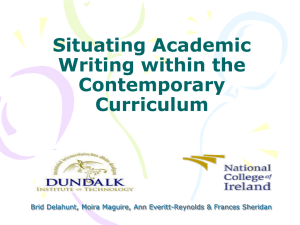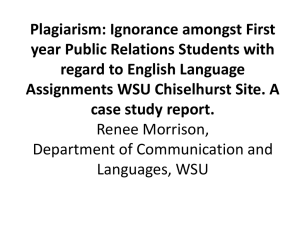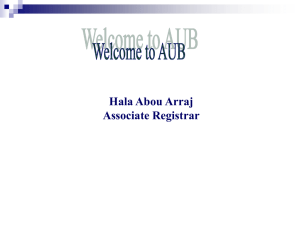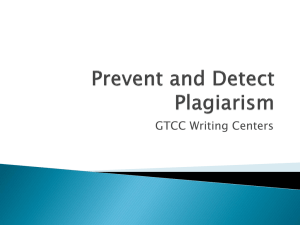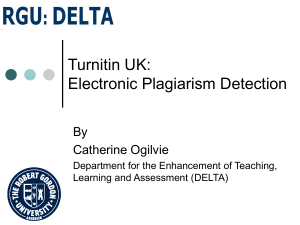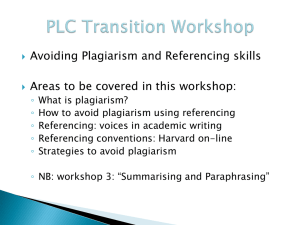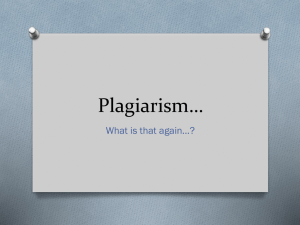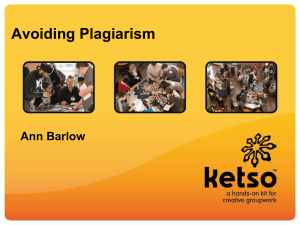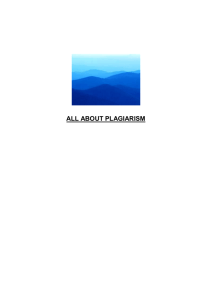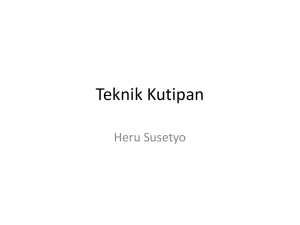Helping Students Avoid Plagiarism
advertisement
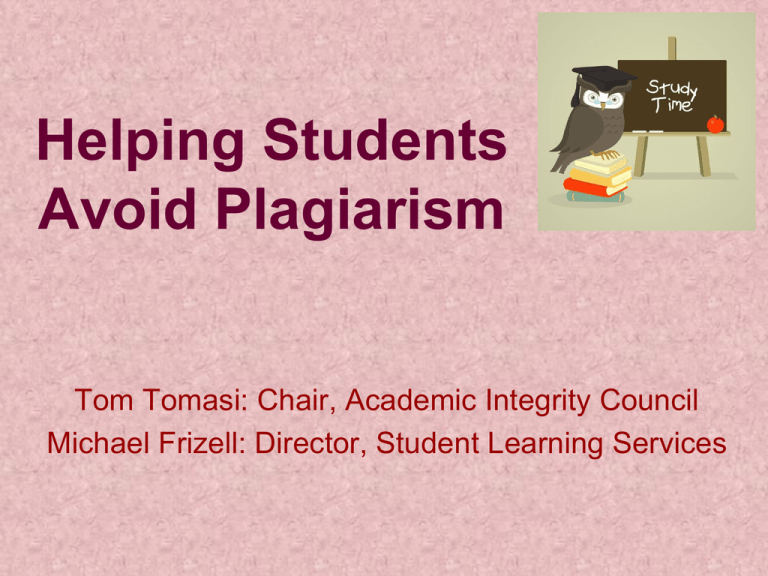
Helping Students Avoid Plagiarism Tom Tomasi: Chair, Academic Integrity Council Michael Frizell: Director, Student Learning Services Introductions PLEASE TELL US • Teachers, TA’S, Other? • English vs. other disciplines? • Freshman, sophomore, upperclassman? Definitions & Misconceptions • Unauthorized use of words or ideas • NOT TRUE • Excludes images, music, inventions, etc • Internet sources with no author shown don’t have to be cited. • “Common knowledge” doesn’t need citing • Plagiarism has to be intentional – “sloppy scholarship” vs. taking a shortcut Avoiding Plagiarism Plagiarism is… …using someone else’s words or ideas as though they were your own. …intentional or unintentional “borrowing” from another person’s work. …paying someone to write a paper. …a serious offense. Teachers’ Writing Expectations • How do your students know you’re serious about plagiarism and grades • Why else should the students care? – Plagiarism is a form of stealing – Plagiarism is not a victimless crime Why should I Cite Sources Credit where credit is due Assists other researchers interested in your work Demonstrates the amount of work you’ve done Strengthens your work by supporting it! Teachers’ Writing Expectations • How much grading do you expect to do? • Do you expect to teach writing too? • Does you expect their writing to be perfect? • Where can you get help (or send your students for help) to avoid plagiarism? Teaching Good Writing Skills • Meyer Library website for plagiarism http://guides.library.missouristate.edu/content.php?pid= 16689&sid=343754 • The Writing Center’s Resource page which includes a ppt presentation on plagiarism as well as a link to the library’s plagiarism expert guide http://writingcenter.missouristate.edu/24690.htm • An interesting example of a well-explained plagiarism policy by Rebecca Moore Howard and comparing it to the policy at Syracuse University http://wrt-howard.syr.edu/Syllabi/PlagPolicy.html. What’s a Citation? the page numbers of the material you are borrowing information about the author the date your copy was published the title the theoftitle work of the work the name and location of the company that published your copy of the source Giving Assignments • Multiple phases of one assignment – Reference list, rough draft, final draft • Assignments that ask for opinion, not just fact • Changing assignments each year • Learn the writing styles of your students Punishing Offenders • What sanctions are allowed by our policy? • What sanctions are appropriate? – “Teachable moments” • Report all incidents to the AIC, regardless of sanction • Why is it important to punish plagiarism? – If it goes unpunished, the word spreads – If it gets punished, the word spreads faster! Using Turnitin.com • How many of you use Turnitin.com? • How many use Blackboard? • An assignment can be given via either: – Setting up a “class” in Turnitin.com – Assigning a paper through Blackboard Questions???


